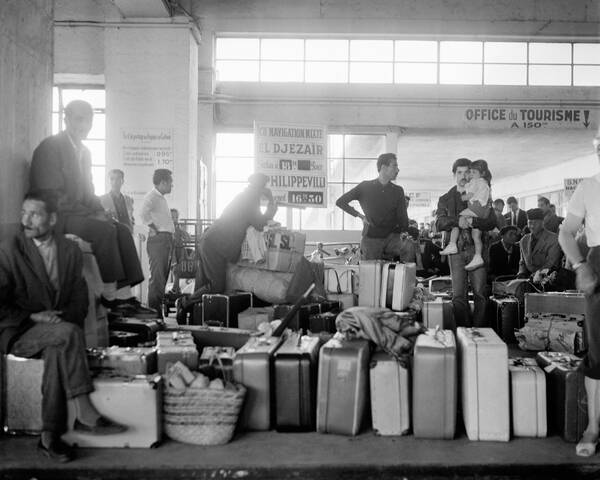You are now entering the Jewish Currents archive.
September 4: The Great Tailors’ Strike
 Twelve thousand New York tailors went out on strike on this date in 1894 to protest the sweatshop system that exploited their labor for half a year and then gave them no work off for the other half. According to The Outlook (September 15, 1894), a New York magazine, their demands were “for a ten hours’ day, from 7 A.M. to 6 P.M., with an hour off at noon, a weekly minimum wage, and a weekly pay-day.” The “Protective Association” of cloakmaker manufacturers (many of them Jewish, like most of their workers), as well as several important wholesale clothing dealers, “declared that they considered the demands of the men right, that no business which could not pay the workers the minimum wages asked ought to exist,” while “the press and the public have also heartily sustained these demands, so that there can be no doubt that the public will pay, if necessary, the increased prices for the clothing rendered necessary” — yet the strike would last for much of the autumn. In a September 13, 1894 article, the New York Times described the striking workers as “liv[ing] half the year on what they saved from meagre wages [$4 per week] earned in the other half.” The year 1894 was a year of economic depression and widespread labor unrest, including the Pullman Strike — which paralyzed the railroads, making Eugene Victor Debs America’s most important labor leader — and brought down violent government repression.
Twelve thousand New York tailors went out on strike on this date in 1894 to protest the sweatshop system that exploited their labor for half a year and then gave them no work off for the other half. According to The Outlook (September 15, 1894), a New York magazine, their demands were “for a ten hours’ day, from 7 A.M. to 6 P.M., with an hour off at noon, a weekly minimum wage, and a weekly pay-day.” The “Protective Association” of cloakmaker manufacturers (many of them Jewish, like most of their workers), as well as several important wholesale clothing dealers, “declared that they considered the demands of the men right, that no business which could not pay the workers the minimum wages asked ought to exist,” while “the press and the public have also heartily sustained these demands, so that there can be no doubt that the public will pay, if necessary, the increased prices for the clothing rendered necessary” — yet the strike would last for much of the autumn. In a September 13, 1894 article, the New York Times described the striking workers as “liv[ing] half the year on what they saved from meagre wages [$4 per week] earned in the other half.” The year 1894 was a year of economic depression and widespread labor unrest, including the Pullman Strike — which paralyzed the railroads, making Eugene Victor Debs America’s most important labor leader — and brought down violent government repression.
“The sweating system has been for many years publicly condemned, but so long as the men consented to work for miserable wages and during excessive hours, the competition of the men for work and of the public for cheap goods rendered every one concerned helpless. The men themselves were the only power that could stop the steady process toward starvation wages. Nor could they have done anything had they not been organized in a ‘union.’ “The results of this strike should convince the most unbelieving that there is power for good as well as for evil in trade-unions, and that public opinion can do much to facilitate justice in such cases . . .” —The Outlook
